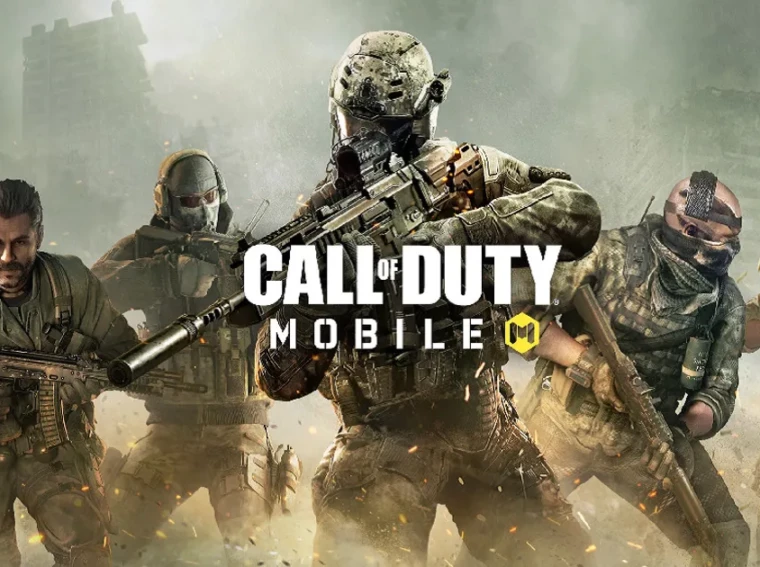In the world of mobile gaming, where success is often measured by downloads, active users, and revenue, Call of Duty: Mobile has emerged as a dominant force. Launched in October 2019 by Activision, this mobile version of the beloved first-person shooter series has quickly climbed the ranks to become one of the most popular mobile games globally. But what’s even more impressive is how Call of Duty: Mobile is not just competing within the gaming ecosystem; it’s also rivaling some of the top online apps across different categories, such as Aviator, a trending online game that has captivated casual players worldwide.
The Rise of Call of Duty: Mobile
Since its launch, Call of Duty: Mobile has broken multiple records, garnering over 100 million downloads in its first month and consistently staying at the top of the charts. Built with impressive graphics, smooth gameplay, and a wide variety of modes, the game offers a true Call of Duty experience for mobile users. With its battle royale mode, team deathmatch, and classic Call of Duty maps, it provides depth and excitement that rival even its console counterparts.
The mobile gaming landscape has evolved significantly, and games like Call of Duty: Mobile are catering to a broader audience than ever before. While traditional gamers flock to the platform for its competitive edge and familiarity, casual players find themselves drawn to the simple accessibility and fast-paced matches that can fit into any daily routine. The game’s cross-platform play also allows players to compete with or against console and PC users, broadening its appeal even more.
Competing with Non-Gaming Apps
One of the most interesting aspects of Call of Duty: Mobile’s rise is how it is competing with apps outside of the traditional gaming space. Take Aviator, for example—a popular online game that has surged in popularity thanks to its innovative and simple mechanics, appealing to casual gamers. Aviator is essentially a game of chance where players bet on how long a plane will stay in the air, adding an element of risk and reward that has quickly captured the attention of users looking for quick thrills.
Although Aviator and Call of Duty: Mobile are fundamentally different in terms of gameplay and depth, both target mobile audiences and compete for time and attention on the platform. Apps like Aviator have become popular because they offer bite-sized entertainment and don’t require a long time commitment. However, Call of Duty: Mobile, with its more immersive experience, offers both casual and competitive play, creating a loyal player base that logs in daily for more extended sessions. This balance of depth and accessibility has made Call of Duty: Mobile a serious competitor not just within the gaming category but across the entire mobile app landscape.
The Appeal of Call of Duty: Mobile
One of the key reasons Call of Duty: Mobile is maintaining its edge over appsis the richness of its content. The game continuously updates with new seasons, weapons, operators, and maps, keeping the gameplay fresh. Additionally, Call of Duty: Mobile’s in-game events, tournaments, and collaborations with other media franchises (such as Halloween or movie-themed events) provide players with more reasons to stay engaged.
Moreover, Call of Duty: Mobile’s free-to-play model, supplemented by in-app purchases for skins, weapons, and season passes, aligns perfectly with mobile users’ expectations. This monetization strategy mirrors what casual games offer with microtransactions and gambling-style mechanics. However, while games like Aviator focus on luck, Call of Duty: Mobile centers on skill and strategy, attracting a more diverse and engaged audience.
The Battle for Time and Attention
In today’s mobile ecosystem, the competition isn’t just about downloads or user engagement within the same genre—it’s about total screen time. Apps across all categories, from games to social media platforms, are fighting for the attention of users, making the battlefield larger and more competitive. This is where Call of Duty: Mobile excels. By offering various modes—whether you have time for a quick match or want to invest hours in competitive ranked play—the game adapts to users’ needs, making it hard for even the most casual player to put down.
On the other hand, apps like Aviator cater to users looking for quick, low-commitment experiences. These games appeal to those who prefer casual betting or gambling-like mechanics, and while they have a significant user base, they lack the deeper engagement found in games like Call of Duty: Mobile.
A Future Dominated by Mobile Gaming
Mobile gaming continues to grow at an unprecedented pace, with both casual games and hardcore titles seeing exponential growth. Call of Duty: Mobile stands as a testament to how far mobile gaming has come, not just competing within its category but also challenging other top online apps in user engagement, screen time, and overall revenue. As technology advances and mobile devices become even more powerful, the line between console-quality experiences and mobile games continues to blur.
In this ever-evolving landscape, Call of Duty: Mobile is proving that mobile games can offer as much excitement and depth as their console counterparts while maintaining the convenience and accessibility that mobile users demand. As the game continues to expand and evolve, it will undoubtedly remain a top contender in the mobile app space, whether competing against other gaming giants or casual apps. The future of mobile gaming is bright, and Call of Duty: Mobile is at the forefront of this revolution.



